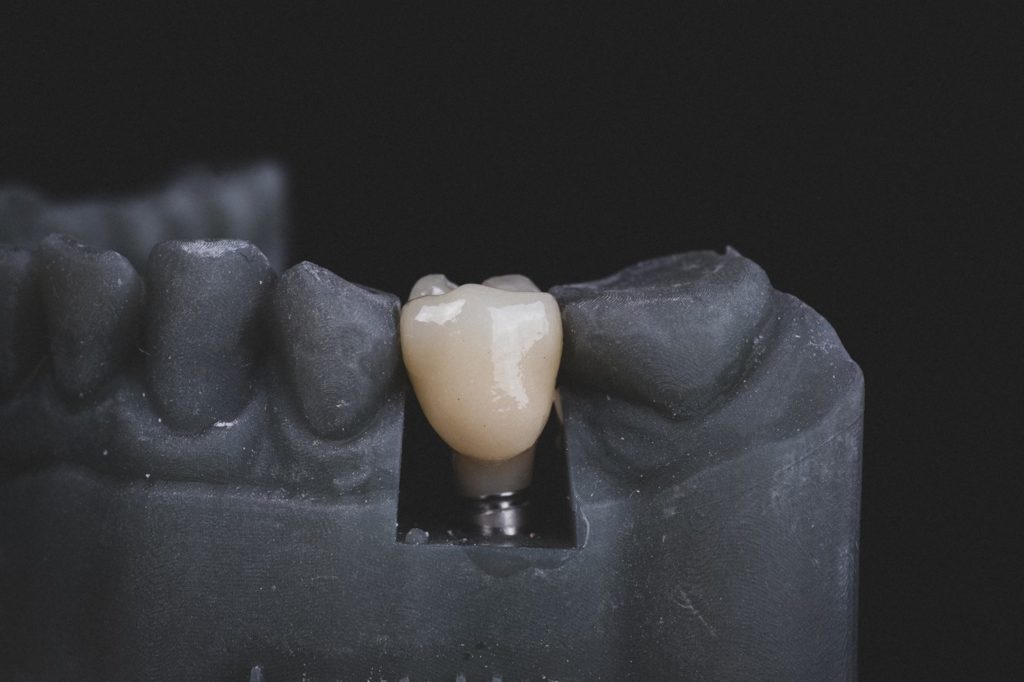Sometimes, saving a tooth simply isn’t an option. Whether you’re dealing with severe decay, a stubborn impacted wisdom tooth, or damage from an injury, tooth extraction might be the best solution to restore your oral health and relieve discomfort.
While the idea might be daunting, understanding the process and aftercare can ease your worries.
Why Do I Need a Tooth Extraction?
Your dentist will always prioritize saving your natural teeth whenever possible.
However, there are specific situations where tooth extraction becomes the most viable path to relief and a healthy smile:
- Severe Decay: When decay progresses beyond the point where fillings or root canal therapy are effective, extraction might be the only way to prevent further infection.
- Impacted Teeth: Wisdom teeth are notorious for becoming impacted, meaning they get stuck beneath the gumline. This can lead to pain, infections, jaw problems, and damage to neighboring teeth.
- Advanced Gum Disease: Severe periodontal disease weakens the bone and tissue supporting your teeth, potentially leading to tooth loss. Extraction may be necessary in advanced cases.
- Trauma: Accidents or injuries can cause irreparable damage to a tooth, even if there’s no visible external crack.
- Orthodontics: In some orthodontic treatment plans, tooth extractions create space for proper alignment and a beautiful, straight smile.
- Crowded Teeth: Occasionally, extractions may help alleviate severe overcrowding and create a healthier, more balanced bite.
Preparing for Your Tooth Extraction in Raleigh, NC
Feeling anxious before a dental procedure is completely normal.
Here’s how you can prepare to make your tooth extraction in Raleigh, NC as smooth and stress-free as possible:
- Consultation: Discuss your medical history and any medications you take. Your dentist will thoroughly examine the tooth in question, taking X-rays if necessary. This is your opportunity to ask any questions.
- Anesthesia Options: Most extractions involve local anesthesia to numb the area. For those with dental anxiety, sedation options might be a good fit. Talk to your dentist to determine the best choice for you.
- Plan for Aftercare: Your dentist will outline the aftercare process, including managing pain and swelling. They’ll also discuss options for tooth replacement, such as dental implants or bridges, if necessary.
The Tooth Extraction Process
While the specifics of an extraction vary, all procedures fall into two main categories:
Simple Extraction:
- Targeted Teeth: This technique focuses on teeth that are fully visible above the gum line and not impacted.
- The Procedure: Your dentist will begin by numbing the area with a local anesthetic. Next, they’ll employ specialized instruments called elevators to carefully loosen the tooth within its socket. Once the tooth is sufficiently loosened, forceps are used to gently remove it.
- After the Extraction: In most simple extractions, stitches aren’t necessary. Your dentist will place gauze over the extraction site to help control bleeding and promote clot formation.
Surgical Extraction:
- Complex Cases: This approach is reserved for teeth that are impacted (trapped beneath the gumline), broken off at the gum line, or have complex root structures.
- The Procedure: Your dentist will begin by administering a local anesthetic. In some cases, sedation may be used to enhance relaxation. Next, they will make a small incision in the gum tissue to access the tooth. It might be necessary to remove some bone around the tooth or even divide the tooth into sections for easier removal.
- After the Extraction: After the tooth is removed, the extraction site usually requires stitches to close the incision and promote healing. Your dentist will provide detailed instructions for aftercare.
Managing the Days After Your Extraction
Good aftercare is key to a speedy recovery. Here are the essentials:
- Bleeding: It’s normal to experience bleeding for the first day or so. Use gauze as directed by your dentist to apply gentle pressure.
- Pain and Swelling: Ice packs and over-the-counter pain relievers can help manage discomfort.
- Diet: Initially, stick to soft foods and liquids. Avoid anything too hot, spicy, or crunchy, as they can irritate the extraction site.
- Oral Hygiene: Gently brush and floss around the extraction site, being careful not to disturb the blood clot. Use a warm salt-water rinse as recommended by your dentist.
- Rest: Give your body the time it needs to heal. Avoid strenuous activity and get plenty of rest.
Healing and Recovery
The healing process takes time. Most people experience significant improvement within a week, but complete healing can take a few weeks or even months.
Your dentist will schedule follow-up appointments to ensure the area is healing properly.
Your Partner for Dental Health in Raleigh, NC
At New Hope Dental Care, we understand the concerns that come with tooth extraction in Raleigh, NC. Our experienced team and compassionate approach will guide you through every step.
We prioritize gentle techniques and offer a range of comfort options to ensure a positive experience.
Ready to find relief? Schedule your consultation today at New Hope Dental Care. Let us help you overcome your worries and get back to a healthy, pain-free smile.

